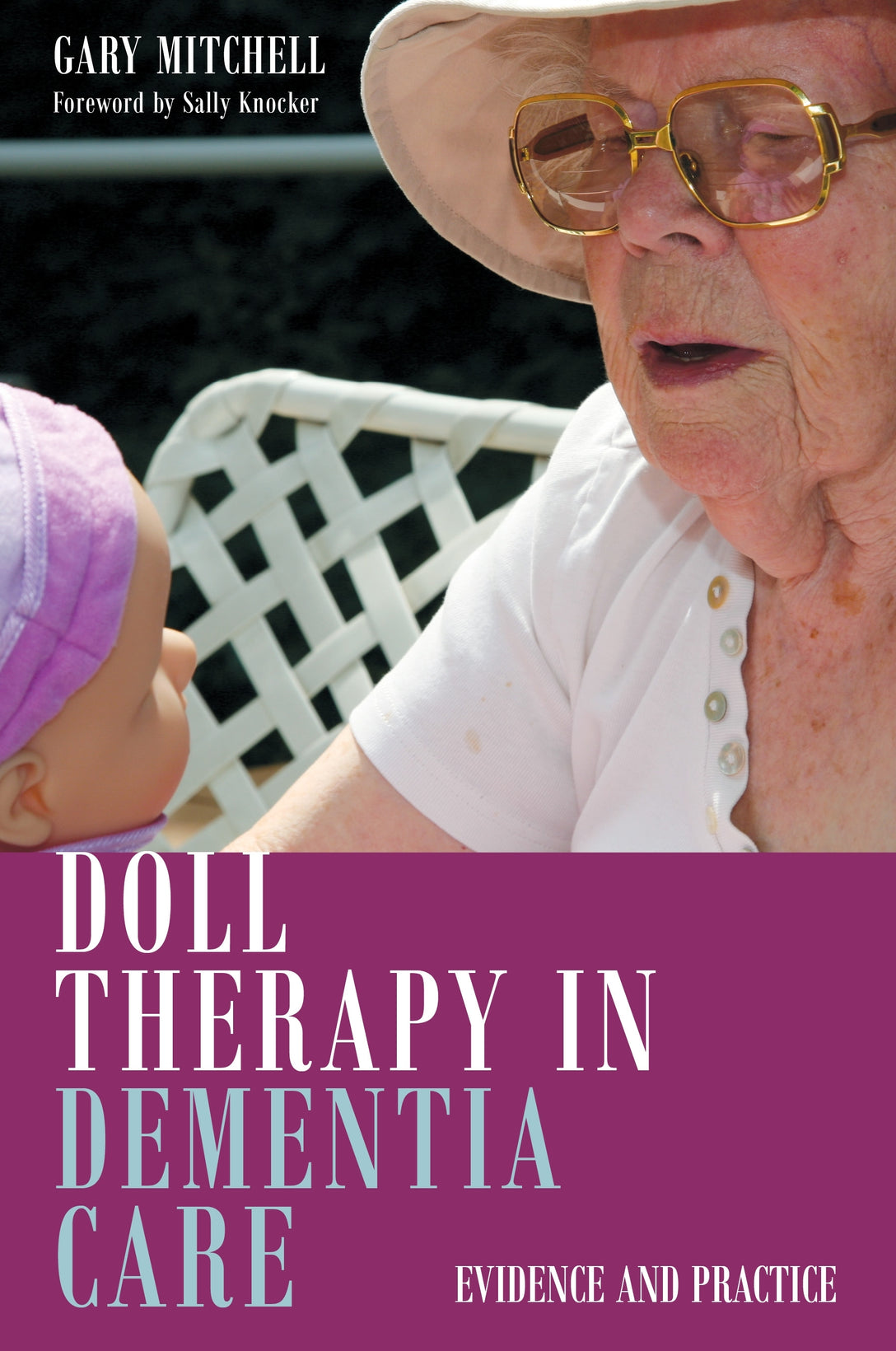
Press Reviews
Professor Richard Fleming PhD, Director, NSW/ACT Dementia Training Study Centre, Adjunct Professor, Wicking Dementia Research & Education Centre, University of Tasmania
An honest and eye-opening exploration of the use of dolls in improving the lives of people with dementia. I found the key to opening my eyes was the statement that we shouldn't look at the dolls but look at the person. Enough beneficial examples are given for me to feel comfortable about the judicious use of dolls while empirical investigations tease out who they are good for and under what circumstances.
June Andrews FRCN Professor Emeritus of the Public Understanding of Dementia
Allowing people with dementia a soft toy or doll has raised disproportionate anxiety. This book explores thoroughly every argument about whether the practice is right or wrong, but finally reminds us to be kind, and humane above all else.
Leah Bisiani, Dementia Consultant, MHlthSc, “Uplifitng Dementia”, http://shimmeringspirit.wix.com/uplifting-dementia
Gary Mitchell has refreshingly delved into controversy, effectively dispelling stereotypical, preconceived judgements surrounding the practice of using dolls in dementia care. Whether regenerating past relationships, or regaining the space held in the world, he has provided an impetus to developing an increased open-mindedness in the provision of encounters that encourage positive ageing, this respecting meaningful experiences based on deferential reciprocity. Demonstrating another valuable way forward in the provision of person-centered dementia care and preservation of personhood. Delightful and insightful.
Sally Knocker, Consultant Trainer with Dementia Care Matters
This is a book that is very over-due in the dementia care field...Gary writes in an engaging and accessible style providing a comprehensive range of theoretical and practical illustrations of why every hospital, care home or day service, where people living with a dementia may find themselves, needs to ensure that dolls are an integral part of their repertoire of approaches. This is a book which has at its core the recognition that the real heart of all our human experiences is the need for love; and when we are facing the many losses and challenges of the journey of dementia, we need to be sure love is there for us even more.
Henry Simmons, Chief Executive, Alzheimer Scotland
For some people the mere mention of Doll Therapy will induce fears of infantilisation and invalidation and will be quickly dismissed as inappropriate. I admire the fact that this author lays out his own initial thoughts of this nature at the start of the book. However, he then goes on to piece together a compelling and well-constructed book that will challenge any practitioner to dismiss this as a valid form of non-pharmacological intervention. The book wrangles with the ethical dilemmas of Doll Therapy, it uses well researched evidence and highlights many personal stories. He gives detailed practice examples from some very well respected services and he ends by offering some very useful practice guidelines. For such an evidence based book it is an emotionally challenging read and I would encourage anyone in search of the best forms of human intervention for people with dementia and their families to read this. Enjoy the challenge, then make your mind up; I suspect you might change your view by the end.
Liz Cunningham, person living with dementia and Ambassador and Dementia Friendly Communities Champion for the Alzheimer's Society
I was asked to review Doll Therapy in Dementia Care by Gary Mitchell. To be honest I was reluctant to believe this could be used to alleviate distress or agitation. After reading the book two times as a person who has Alzheimer's and PCA I thought it was written by a person who clearly had empathy and clearly illustrated how individuals at a later stage of dementia could satisfy their inner feelings of need, being loved and wanted. The most important aspects of care that a family want for their loved ones is ensuring they are content and happy within their environment. It can be very difficult for relatives watching their mum or family member cuddling an inanimate doll. Yet perceptions can change once they see their "loved one smile with pleasure at holding something close to love again." The image of an older person cuddling and singing to a doll can seem strange and incongruous. Yet I realise I had the same need and when my grandson was born I was doing the same thing but instead of being a doll it was a real baby. I couldn't get enough. I had such a yearning to hold, love and want to have this baby as much as I could. The moral and ethical dilemmas should not supersede the reality of the beneficial impact - every person has a vivid desire to express affection, physical nurturing and emotional attachment that is clearly stored in the repository of their brains irrespective of what type of dementia or stage they are at.
